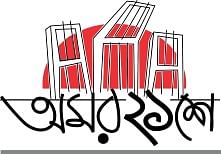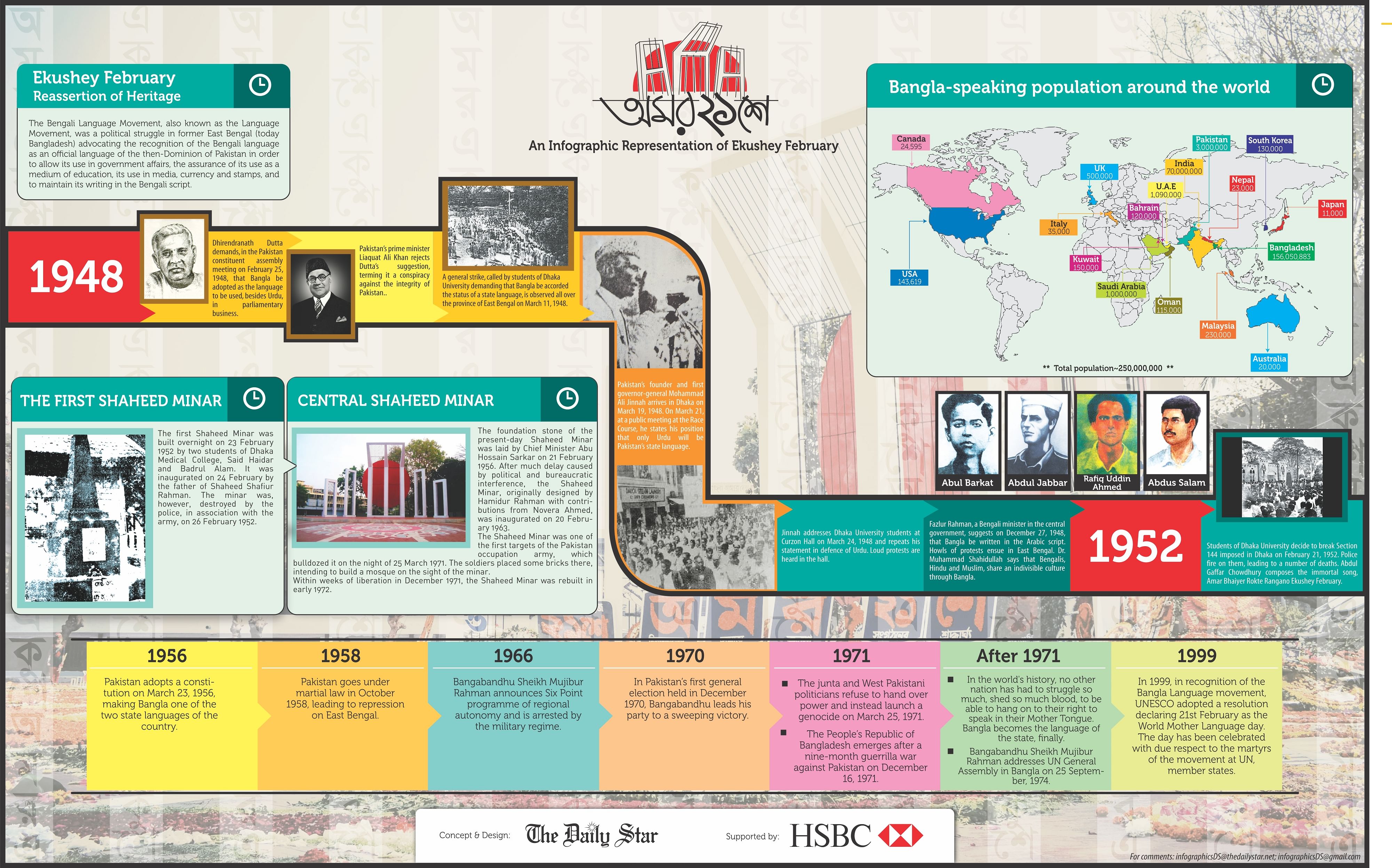Today, Amar Ekushey
Today, Amar Ekushey

Abul Maal Abdul Muhith's work on the history of the language struggle -- State Language Movement in East Bengal 1947-1956-- provides an insightful account of how events shaped up after February 21 and 22, 1952. On April 26, a non-communal organisation known as East Pakistan Students Union (EPSU) was formed. Sometime around mid-1952, a number of leading Bangalee intellectuals organised the Pakistan Shahitya Parishad.
An especially important development after the tragedy of February 21 was the decision by the East Pakistan Muslim Students League to drop the term "Muslim" from its name and thereby turn itself into an inclusive and secular organisation. This step was taken in 1953. Earlier, from August 22 to 24, 1952, an East Pakistan Cultural Conference was organised in Comilla, its focus being the language issue. Eminent literary personality Abdul Karim Shahityabisharod presided over the conference and in his remarks made it clear that Bangla was and would remain the language of the people of East Bengal.
There was a clear snowball effect of the shootings of February 21, particularly in the educational institutions of the province. Elections to the halls of Dhaka University showed groups that had so long had the patronage of the government losing to progressive, secular student bodies. On February 21, 1953, the first anniversary of the killings was observed in a peaceful manner, with reports suggesting that the authorities and the students had reached an agreement for the anniversary not to be marred by violence.
But there were yet elements who refused to acknowledge the reality of Ekushey. Students at Eden College and Dhaka College ran into opposition from their teachers when they tried to set up memorials in honour of the 1952 martyrs. The teachers also opposed their programmes, which included patriotic songs intended to be sung on the anniversary.
In March 1953, the rising young poet Hasan Hafizur Rahman brought out a collection of poetry he called Ekushey Shonkolon. A ban was clamped on it almost immediately and the journal would not reappear until 1965 and then again in 1968.
